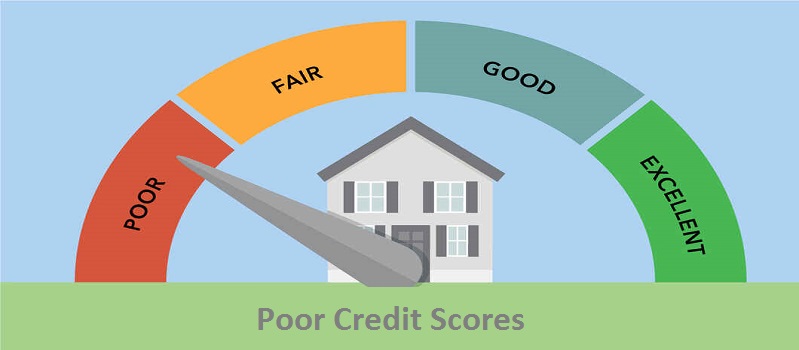Budgeting is paramount because the cost of living is rising. The rising inflation rates have blown consumers’ buying power very hard. With a sudden and unexpected rise in the outlay, a large number of people are struggling to have enough savings.
Financial experts suggest setting aside money, so you are not in the red during an emergency. You are often told valuable pieces of advice on speeding up savings, but that time-honoured advice fall on deaf ears.
Small loans have made it convenient for many borrowers to fund their small expenses, which has become a big reason for neglecting a rainy-day fund. Loans seem affordable but they are actually not. It is not easy to make a lump sum payment on the due date. As a result, you may fall into debt.
Believe it or not, you will have to create a budget to be in control of your expenses. Budgeting should be completely stress-free.
Stress-free budgeting rules that you must know
Here are the rules to create a stress-free budgeting:
1. Start your budget with clear goals
Your budget should tell you what you want to achieve. Set goals and accordingly you should create a budget. These goals can be paying off debt or simply going on a no-spending challenge. When you have clear goals, you will stay motivated. Having knowledge of what you are working towards, it will be much easier to make big decisions to curtail spending.
Measurable milestones will keep you going. Celebrating small successes will make you feel that you can do. You will be more inspired to set tougher and bigger goals and adjust your budget to achieve them.
Prioritise your goals. For instance, if you have to repay very bad credit loans in the UK, you will have to cut back on your spending. Likewise, if you want to go on vacation, you will be willing to cook at home. When you have a robust goal to achieve, you will generally be tempted to whittle down your expenses.
Knowing what to achieve with your money can decrease your spending. Your stress will be abated when you see your savings for your goals are growing up.
2. Use the right budgeting tool
There are various budgeting apps you can use for tracking your expenses. The best app is one that lets you stick to your budget. Features of each budgeting app vary, but make sure you use the one that efficiently pull information from your accounts and show it in one place.
Some apps will require you to manually record all transactions. Such apps are a real headache. You should instead use those apps that let you link them to your pay account to pull all transactions and demonstrate in one place. You will have a clear idea of how much money is coming in and how much is going out.
Such apps will give you an insightful reporting on a particular category that has consumed a greater portion of your spending. This will give you an idea of what areas you should work out with to bring down your spending.
If you have spotted debt payments, you should start relying less on loans for bad credit with no guarantor. Come up with a payment plan that goes well with your budget. Identify other areas as well where you think you can whittle down your expenses.
Some apps are featured with a tracking facility. You can set a spending limit. As you come closer to it, you will be prevented from overspending. This is how it will allow you to stick to your budget.
3. Take advantage of automation
Automation will keep you stuck to your saving goals. Link your savings account to your pay account so your savings do not stop growing. Simply set a limit and the money will be automatically transferred. Pay yourself first is an extremely effective strategy to build your savings. Money will be transferred automatically once you choose an auto-debit mode.
Automation will also help you avoid late payments. Lenders will not allow you to make payments after the due date. If you do so, you will end up losing your credit score and attracting interest penalties. Automation can prevent you from falling behind on payments.
With the help of automation, you will be able to establish a discipline approach in your budgeting. Your savings will keep growing and chances of falling into debt are lower. You will stay motivated to achieve your financial goals.
4. Keep your budget simple
Your budget should be simple and easy to handle. Choose categories like food, housing, transport, and leisure. Make sure you divide all your expenses in these categories, so you know which category consumes a lot of money.
Your budget should be flexible and easy to understand and so simple that it whittles down a mental workload. It cannot be hectic if you use a budgeting app. Manual spreadsheets should also not be challenging to create.
5. Adjust your budget regularly
You will have to review your budget to make it work harder for you. Do not forget that every month your expenses will keep changing and therefore it is vital to keep track of your expenses. You cannot trim your budget unless you know where and how much your money is going.
Learn to adapt to your changing circumstances such as marriage, having kids, divorce etc. watch out your expenses and check if there are any possibilities of cutting back on your expenses. With careful monitoring, you will be able to develop a sense of motivation for budgeting.
The final word
Budgeting can be hard and monotonous at times, but you can make it very smooth and stress free. Set clear goals before you start budgeting. You should use the right tool for budgeting and tracking. Automate your expenses, track your spending and look for areas where you can cut back. Keep your budget simple and adjust your budget regularly.

Emma Anderson is a financial advisor at Quickloanslender who always believes in researching hard to know her clients’ financial problems. She takes the time to understand their financial wants and needs to write the blogs on them as the solutions. In her long 14 years of experience, she has written plenty of blogs on the financial and business sectors of the UK.
Emma Anderson has been recognised for her work in financial planning and her blogs are regularly published in the website of Quickloanslender. As far as her educational qualification is concerned, she has done Masters in Accounting and Finance, and done PG Diploma in Creative Writing.





